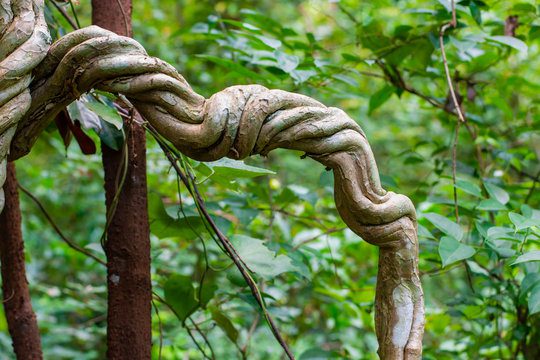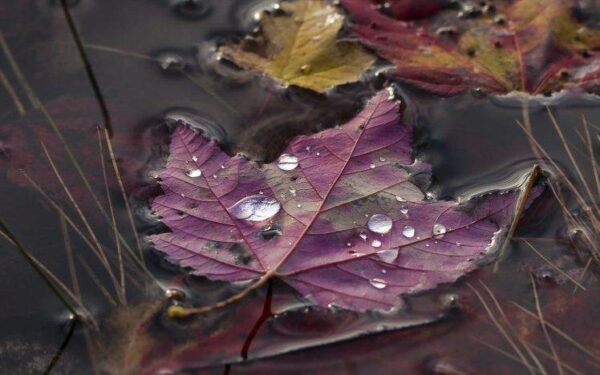
by Bran Paolo Veneziani
I have taken the time to work because this is the price of success.
I have taken the time to think and meditate because this is the real origin of interior strength.
I have taken the time to love and be loved because this is the privilege and the gift of the Gods.
I have taken the time to play because this is the secret of youth.
I have taken the time to read because this is the foundation of wisdom.
I have taken the time to dream because this corresponds to hook my chariot and my life to a magical and faraway star.
I have taken the time to make friends because this is the road to happiness.
I have taken the time to look around me with the curiosity of a child because I have understood that days and life are too short to be selfish.
I have taken the time to laugh because this is the music of the soul.
In the Druidic studies we often come across two terms that represent fundamental principles. They are respectively Kerantez and Nerz, Love/Compassion and Strength/Will. With this brief essay I intend to clarify them and render them understandable to a wider audience, more up to date , more actual and as a consequence to apply them as principles in our everyday life. Druidism, over the centuries, has adapted to the times and circumstances it has met along its way. Far from being a dead or surpassed tradition it can be used and incorporated using a constant practice but also understanding fully which principles it promoted and still encourages.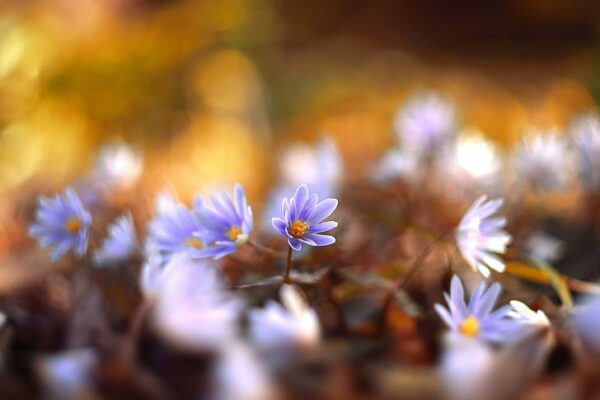 In his famous “De Bello Gallico” Julius Ceasar gives us a smattering of the social role covered by the Druids, but Diodoro Siculo and Strabone were the ones to divide in three “specializations the grades and the character of the Druids of their times .
In his famous “De Bello Gallico” Julius Ceasar gives us a smattering of the social role covered by the Druids, but Diodoro Siculo and Strabone were the ones to divide in three “specializations the grades and the character of the Druids of their times .
If we simplify to the maximum and keep in mind that each grade intersects with the other we can say that the Bards were entrusted with the memories of the clan and of the people. Theirs was the power of the memory and of reminiscences. The Ovates were healers for excellence, they drew the omens and were the keepers of the care of the population. At last we find the Druids. They were the guardians of the most refined philosophy and they were entrusted with the care of ritualistic ceremonies, they dispensed justice following a well tested ethical code and were, in some cases, more important than the chief of a clan or even of a king. Theirs was therefore both a temporal and spiritual power .
After this brief but essential preamble, I mentioned earlier that we can see Druidism as a refined philosophy able to adapt to the times and places where it has taken root and is still flowering. I desire to linger over the principles of Justice, Compassion and Will, rediscovering them as values exportable in our actual historical period . Obviously they should be necessarily “stripped”of some typical characteristics of a historic period now ancient in which, as an example, the sacrifice of an animal or of a human being was considered a common practice, performed to ingratiate the God before facing a battle or celebrated to promote a good harvest, enough for the supplies of food in the coldest and more difficoult periods. This and other practices that today we would value as real and proper taboos, were,at the time, considered an almost commom praxis, and this, I state in clear words, should not surprise us at all. Times change and probably, some objective realities considered normal in our actual society will be seen as barbarism by our descendants.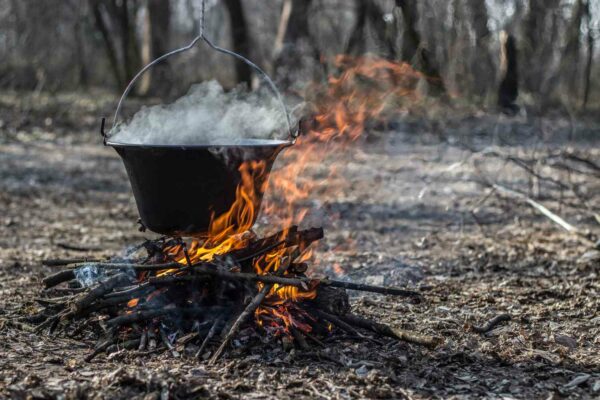 The Cauldron and the Wand, two powerful archetypal symbols of druidic tradition represent at the best, the qualities and the intrinsic gifts related to compassion and strength. The Cauldron, feminine symbol par excellence, as a uterus receives, transforms, blends; The Wand, as a masculine representation, as a phallus, focuses and directs, giving us the strength and the awareness of the will to reach our goals.
The Cauldron and the Wand, two powerful archetypal symbols of druidic tradition represent at the best, the qualities and the intrinsic gifts related to compassion and strength. The Cauldron, feminine symbol par excellence, as a uterus receives, transforms, blends; The Wand, as a masculine representation, as a phallus, focuses and directs, giving us the strength and the awareness of the will to reach our goals.
The correct and balanced use of these two elements shows us the direction to follow in our practice and in our way of acting as beings who seek to place ourselves in the service of a supreme and superior good. One could not prevail on the other, this would cause an internal lack of harmony that would prevent helping ourselves and as a consequence, would render vain every attempt to enter in symphony with our others needs.
Let’s talk now about compassion from the most actual and feasible point of view. How can we take and make ours the typical qualities of a cauldron? We need in first place to understand which these qualities are and, with a constant training, try to understand them at their fullest and to incorporate them gradually in our everyday life.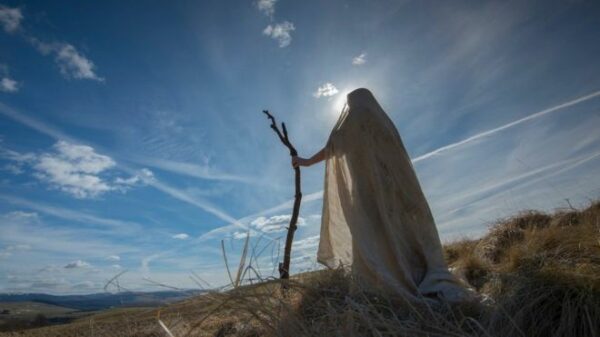 The Cauldron, as we stated earlier, it’s nature is to receive; it’s open, is able to transform every element both internal and external. The Cauldron represents the feminine present in each of us, encloses in itself our capability to enter into empathic relationship with the others, describes our ability to feel emotions and to be able to manage them, entrusting them with the gifts of trasmutation that are its characteristic. The Goddess mixes the ingredients contained in the cauldron, uniting one another, blending and melting them in one unique magical potion. When we understand that we are the cauldron, the ingredients, the ladle and the Goddess herself, then, and only then, we will be able to open ourselves to the wonders that are offered us. We don’t have to forget that the cauldron also represents our vulnerability, our borders, our deepest fears. If we aren’t able to ” take the field ” taking with us also these sides of our being, it will be like having ordered a plate of tasty tomato spaghetti that will instead be served as a simple plate of pasta with oil. It would lack in fact one of the principal ingredients, the one that had probably tempted us to order that dish in particular.
The Cauldron, as we stated earlier, it’s nature is to receive; it’s open, is able to transform every element both internal and external. The Cauldron represents the feminine present in each of us, encloses in itself our capability to enter into empathic relationship with the others, describes our ability to feel emotions and to be able to manage them, entrusting them with the gifts of trasmutation that are its characteristic. The Goddess mixes the ingredients contained in the cauldron, uniting one another, blending and melting them in one unique magical potion. When we understand that we are the cauldron, the ingredients, the ladle and the Goddess herself, then, and only then, we will be able to open ourselves to the wonders that are offered us. We don’t have to forget that the cauldron also represents our vulnerability, our borders, our deepest fears. If we aren’t able to ” take the field ” taking with us also these sides of our being, it will be like having ordered a plate of tasty tomato spaghetti that will instead be served as a simple plate of pasta with oil. It would lack in fact one of the principal ingredients, the one that had probably tempted us to order that dish in particular.
The Caudron is principally compassion and empathy. Let’s think about the great men in history, fpr example Ghandi, Lincoln, they were and are considered to this day great men, beings illuminated by a sort of divine vocation that many people think may come from above, but that, if we examine it carefully, they have engaged with the transformative power of the Cauldron inside themselves, demonstrating to the whole world the capability to feel compassion and empathy towards all sentient beings. They strove selflessly having clear in their conscience the ultimate goal. They didn’t think about themselves as detached from the rest of humanity, but they worked constantly for the benefit of their countries; their principal thought was the entire human society, fighting for the rights of everyone. When the sun shines, it shines on everyone, without discrimination.
 So it is for the Cauldron. If the fire of compassion burns in a continuous way, spreading the heat on the entire surface of the cauldron, the ingredients contained in it will become the nectar that feeds empathy and the absence of dichotomy, as a consequence, will make us much more similar to the examples of great humanity I have mentioned before. The term compassion must not, under any circumstance, be seen in the meaning we are generally used to give it. Its deepest meaning is much nearer to the use of this word in the buddhist religion, and more precisely in the figure of the Bodhisattwa ( an illuminated being who, consciously, decides to renounce to the benefits of Nirvana, continuing to reincarnate to be of benefit to all sentient beings).
So it is for the Cauldron. If the fire of compassion burns in a continuous way, spreading the heat on the entire surface of the cauldron, the ingredients contained in it will become the nectar that feeds empathy and the absence of dichotomy, as a consequence, will make us much more similar to the examples of great humanity I have mentioned before. The term compassion must not, under any circumstance, be seen in the meaning we are generally used to give it. Its deepest meaning is much nearer to the use of this word in the buddhist religion, and more precisely in the figure of the Bodhisattwa ( an illuminated being who, consciously, decides to renounce to the benefits of Nirvana, continuing to reincarnate to be of benefit to all sentient beings).
We must be careful however, compassion is not passivity or total acceptance, on the contrary, it is profound and aimed action. An example can be found in the story of Keridwen and Gwion Bach. In her fury, through her various transformations the Goddess shows us an example of lively and frightening action, driven by a purpose of pure and compassionate wisdom. Gwion Bach drinks the three drops of a potion destined to Keridwen’s son and this literally ” makes the Goddess a beast “. Gwion escapes and trying not to be captured by Keridwen takes the shape of various forms of animals, but the Goddess is always able to surpass him in ability, transforming herself into the antagonist and natural hunter of the animal form taken by Gwion himself. When Gwion Bach, exhausted by fatigue, as a last resort transforms himself in a grain of wheat and lets himself fall down over a haystack, the Goddess takes the shape of a black hen that eats Gwion. The Goddess in this moment, not at all associated with water, and as Jung teaches us, to our unconscious and deep emotions, swallowing the seed that is Gwion Bach, in reality receives him in her womb and there she will learn to love him, of the typical love of a mother towards her son. When the moment comes to give birth, the initial hate is transformed into compassion that will make her decide to set him free, well conscious of the benefits that Taliesin, the name under which Gwion Bach will be known, will bring to the whole world with his art and the wisdom acquired drinking the three drops of her Cauldron.
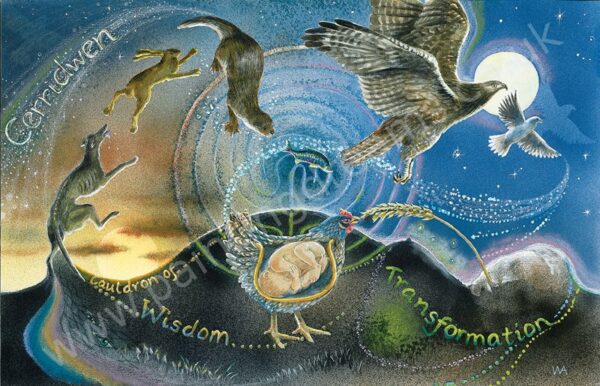
We should consider compassion and empathy as founding elements of our practice, not limitating ourselves to let them settle to a purely intellectual level, on the contrary, we should try to generate such essential qualities through experience and real and true practice .
I think that in the conception of justice of which the druids were keepers, the element related to the ability to feel empathy towards everybody, was a dominant and prevailing concept in respect to every other external element. Sure, as I mentioned above, times were different, the value of human life was considered, not less important than it is now, but maybe was valued as something to sacrifice if this could, in any way, bring benefits to the community. Anyway, now, in our modern and civilized society, times have changed and druidism has changed with them .
Compassion and empathy alone don’t take us anywhere; to be able to consider ourselves real and true practitioners of the green path we need to unite to these qualities the power of the wand , the power we want to give to our life and to our practice .
The wand is a powerful archetype that represents our masculine aspect, the strength of our will, the ability we have to “point to ” a direction and to pursue a result, whichever it might be. If the cauldron teaches us the art to open up together with the ability to feel empathy, the wand, in turn, indicates to us the direction and traces the path towards the goals we decide to pursue. There are many obstacles on the practitioner’s path that can distract us from gaining a conscious and balanced practice. Laziness is one of those. Overcome by a thousand everyday engagements we tend to postpone what we have to do today to tomorrow. To meditate, to create a kind of daily practice to carry out as an acquired habit, dedicate time to comprehend and experiment with the connection that ties us to each aspect of nature, are valid antidotes to help us in fighting this form of laziness that, for its own nature, invalidates every effort towards reaching whatever spiritual goal.
There are many obstacles on the practitioner’s path that can distract us from gaining a conscious and balanced practice. Laziness is one of those. Overcome by a thousand everyday engagements we tend to postpone what we have to do today to tomorrow. To meditate, to create a kind of daily practice to carry out as an acquired habit, dedicate time to comprehend and experiment with the connection that ties us to each aspect of nature, are valid antidotes to help us in fighting this form of laziness that, for its own nature, invalidates every effort towards reaching whatever spiritual goal.
One of the most insidious factors is tied to the little confidence we give to ourselves, as participating beings of the sacrality we can glimpse inside and outside ourselves. The search for transcendence is a component we cannot discover if we haven’t understood deeply that we are the same transcendence we are looking for outside ourselves. To reach this conclusion we necessarily have to abandon the low opinion and the lack of confidence that sometimes pervades us and that makes us completely ordinary beings in a world that is on the contrary more than extraordinary. Confidence in ourselves is what I call “the good ego “and it is an essential component to proceed on our path of spiritual researchers.
The lack of will in facing a research path based on study and practice is itself a factor that can slow down our understanding and undermine the reaching of a wisdom that is not the fruit of simple book learning but of direct experience lived in person. The wand is an essential directive instrument that, as I stated above, can act as a compass both in the material and spiritual plane. It permits us to channel our “spiritual intents ” and manifest these on the physical plane. The wand offers us a paternal quality, able to point out to us the way, to suggest to us the best path to set out on. Similarly to the stick of a shepherd, it guides us on through the internal landscape that every practitioner has necessarily to cover. The use of the wand exhorts us to rediscover our noblest goals, conferring on us at the same time, an authority steeped in the spirit of service. We can quietly define our wand as a sort of tree of life, able to connect us with ourselves, with our values and, last but not least, with the otherworld we will visit.
The wand is an essential directive instrument that, as I stated above, can act as a compass both in the material and spiritual plane. It permits us to channel our “spiritual intents ” and manifest these on the physical plane. The wand offers us a paternal quality, able to point out to us the way, to suggest to us the best path to set out on. Similarly to the stick of a shepherd, it guides us on through the internal landscape that every practitioner has necessarily to cover. The use of the wand exhorts us to rediscover our noblest goals, conferring on us at the same time, an authority steeped in the spirit of service. We can quietly define our wand as a sort of tree of life, able to connect us with ourselves, with our values and, last but not least, with the otherworld we will visit.
As with the cauldron, also the wand must be used with care and attention. An unbalanced use of the power of the cauldron will lead us to be too open and vulnerable, prey of our own emotions. An improvident use of the wand, could awaken in us an unconsidered ego response, promoting actions that are contrary to our growth and consciousness, preventing us from seeing our lives from a clear perspective.
For these reasons it’s necessary to concentrate on the ethics as a means to be able to balance and use properly the intrinsic qualities belonging to the cauldron and the wand. Ethics and morals – the latter not with the meaning of a burden imposed by society, but rather as the rediscovery of the ancient values represented, for example, by the various knightly sagas – are the solid foundations on which it is possible to build a reality based on intellectual honesty and interior strength, able, from its own power, to move the mountain.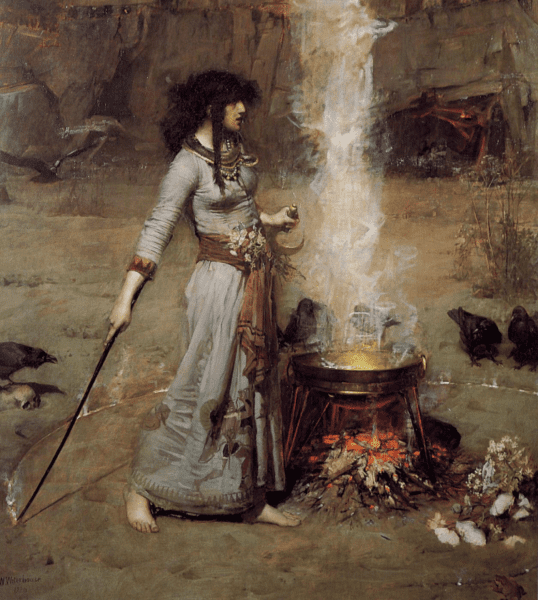 An ethical behaviour, it must be clear, does not preclude the opportunity to engage in a fight for the defence of our own principles, but gives us the motivation and a purpose which is more in line with the Divine.
An ethical behaviour, it must be clear, does not preclude the opportunity to engage in a fight for the defence of our own principles, but gives us the motivation and a purpose which is more in line with the Divine.
To understand deeply, viscerally, that we are ourselves the creators of the reality that surrounds us, permits us to open wide our vision to the realm of the Gods, but to make this happen, we must be able to master our ego, transforming our actions in pure ethics and honesty. Only when we will indeed understand that we are immersed in the world, with a quite precise aim but a limited time to put it in action, then and only then, we will understand that the time we are gifted with must be used in the best possible way. To do this we have to balance our qualities so that they are really put at the service of the others.
We are a receptacle (the cauldron) and we are the direction we decide to take as well (the wand). Excluding one or the other we deny our individual and collective responsibility to the world.
Yours in the Fire of Compassion that burns in the centre of the Sacred Glade
Bran Paolo Veneziani /|\